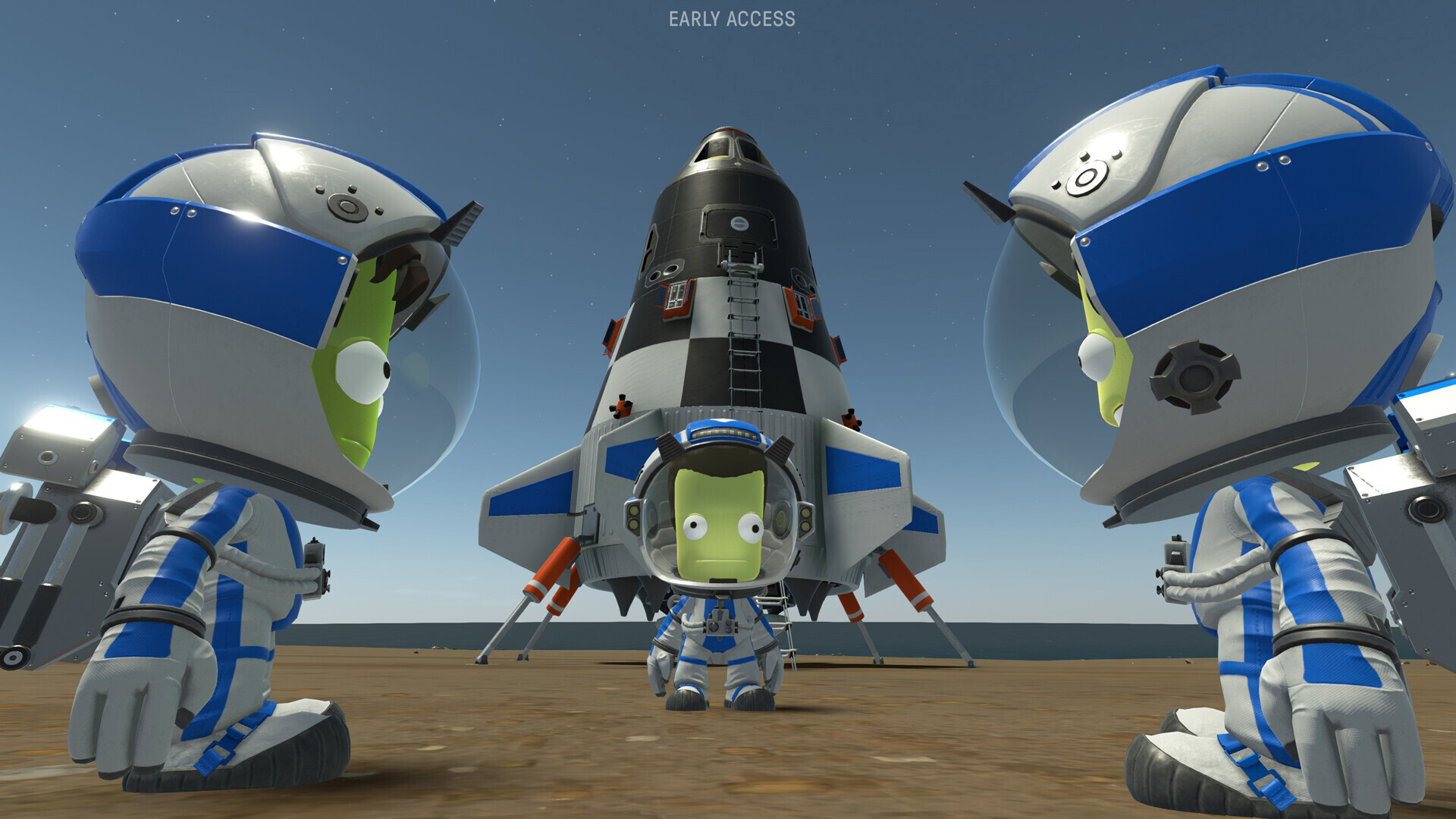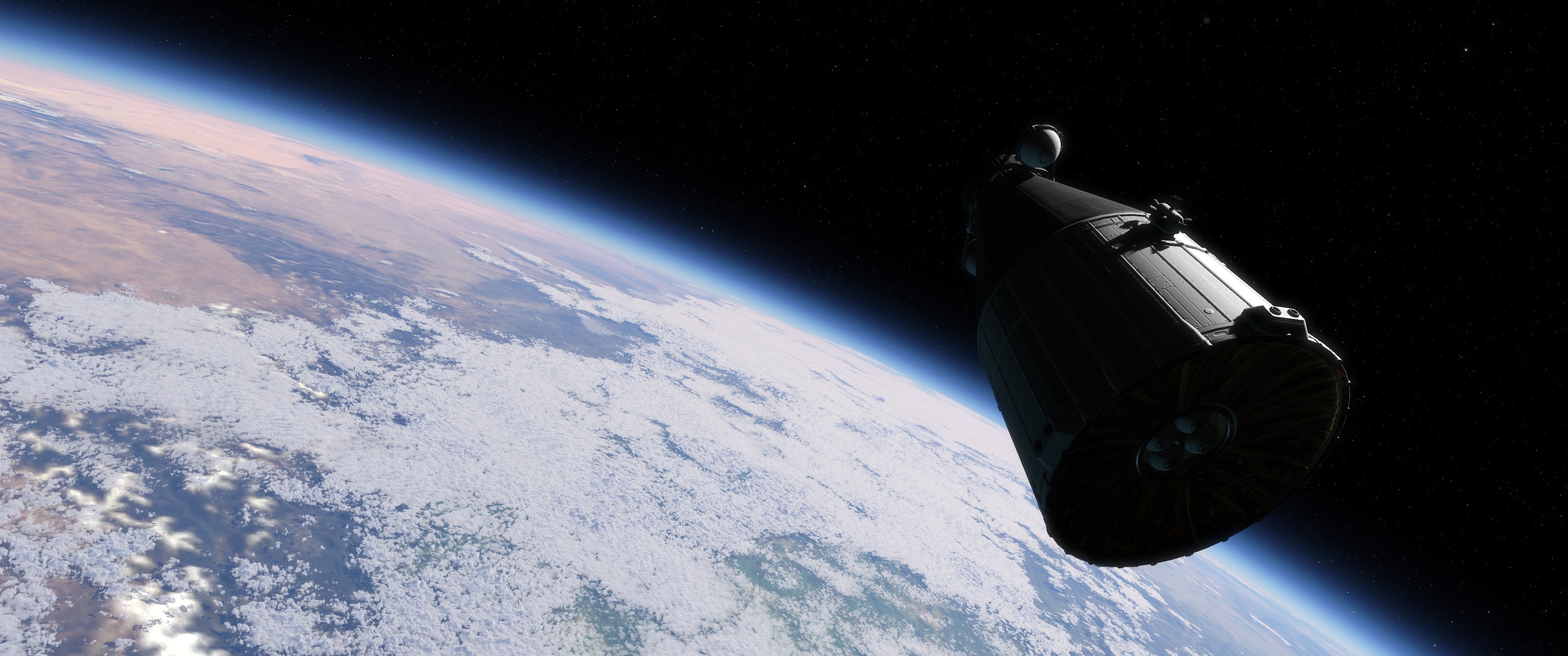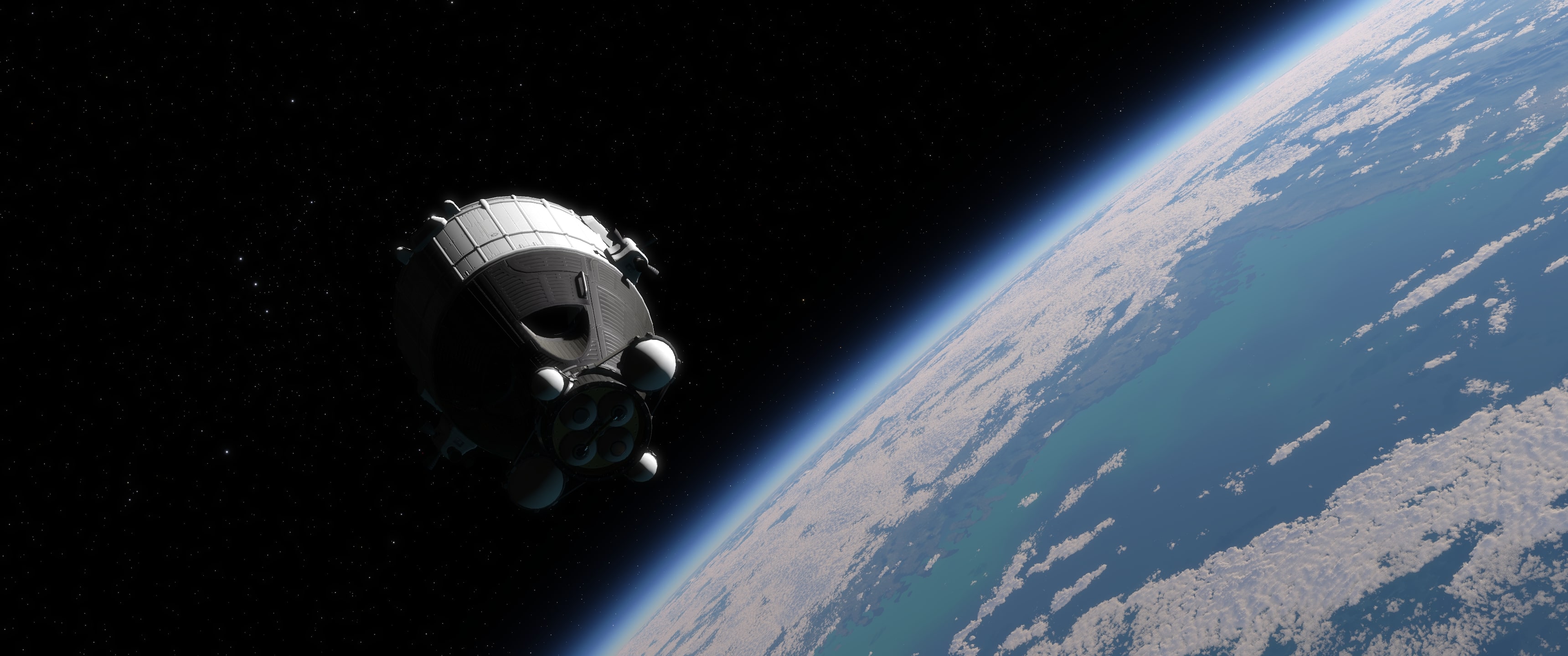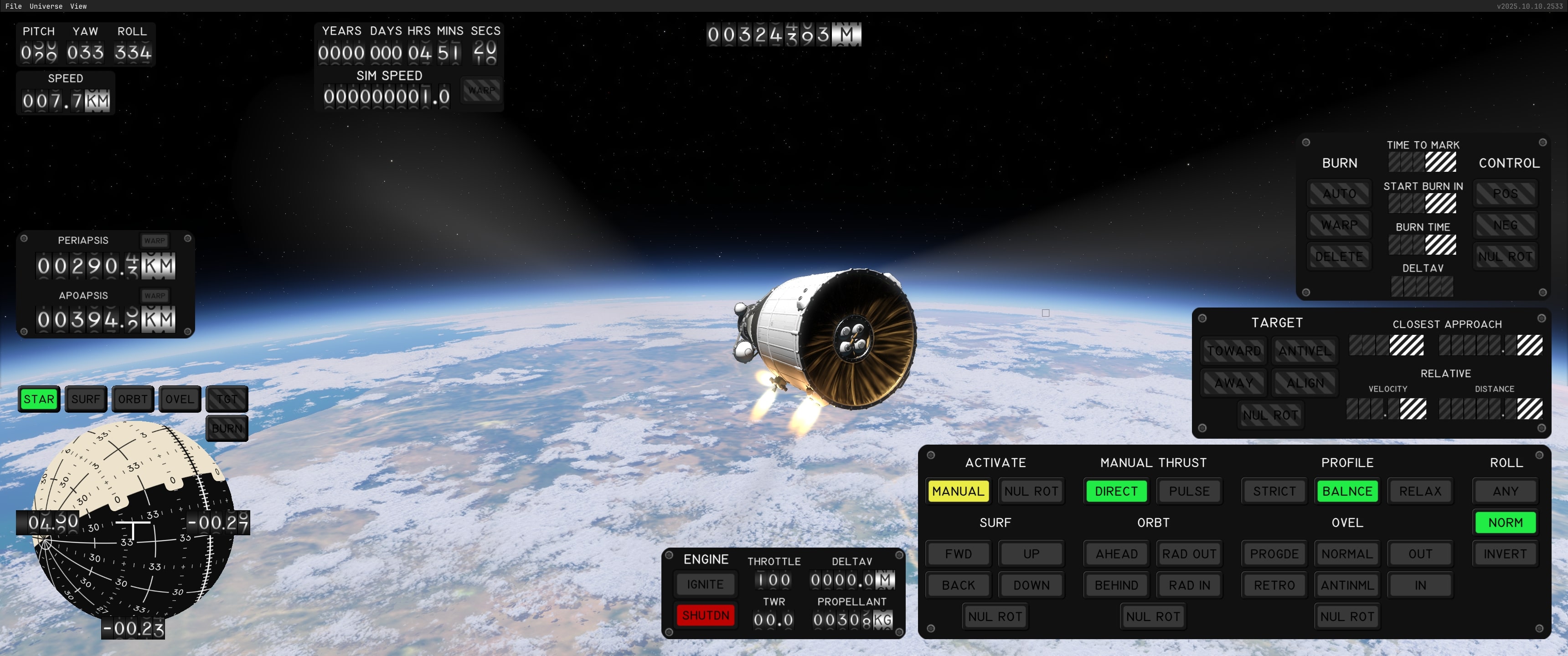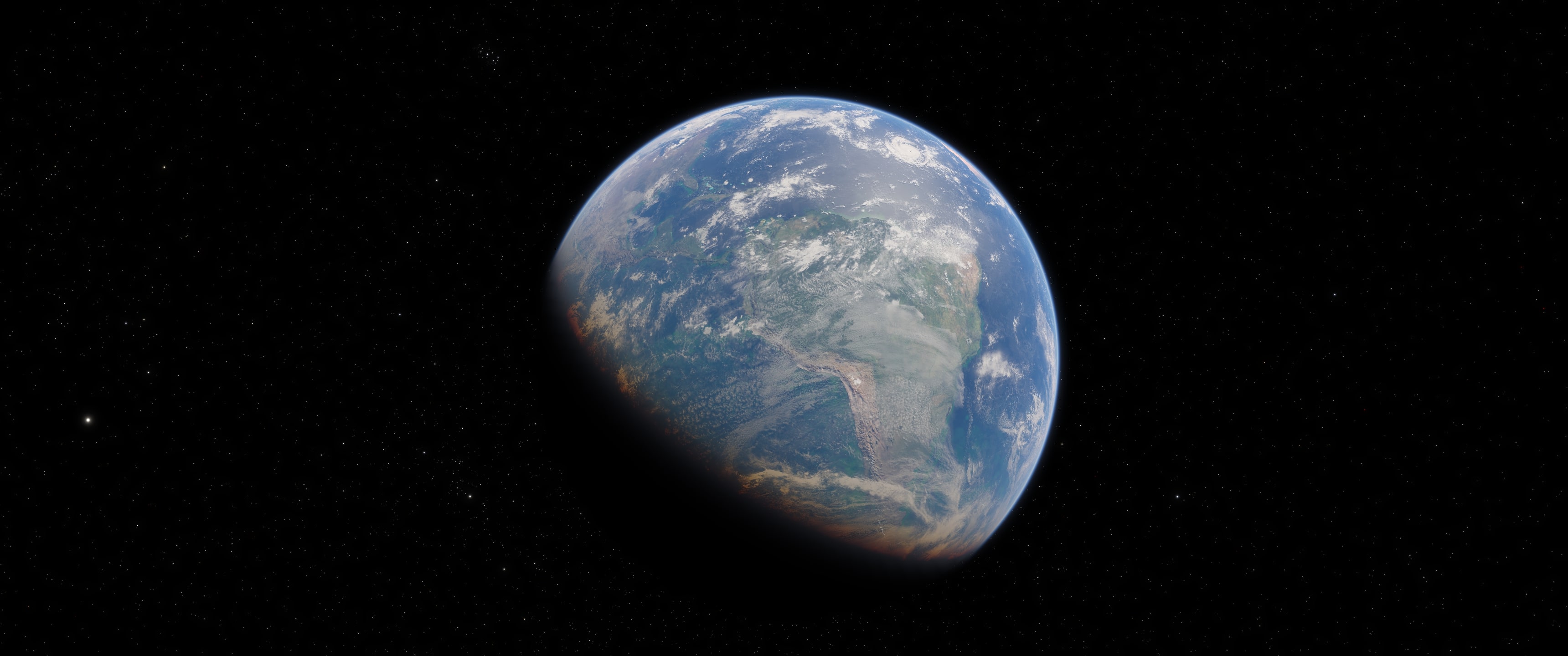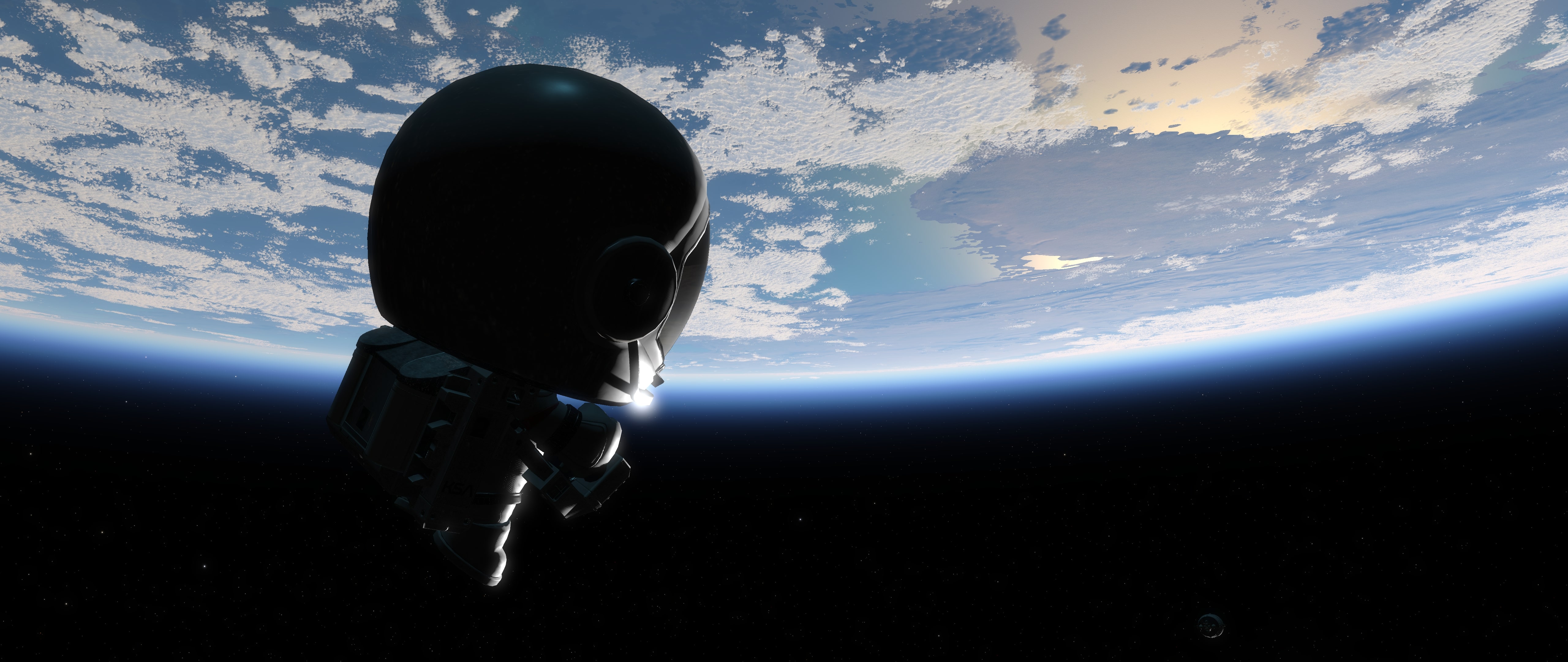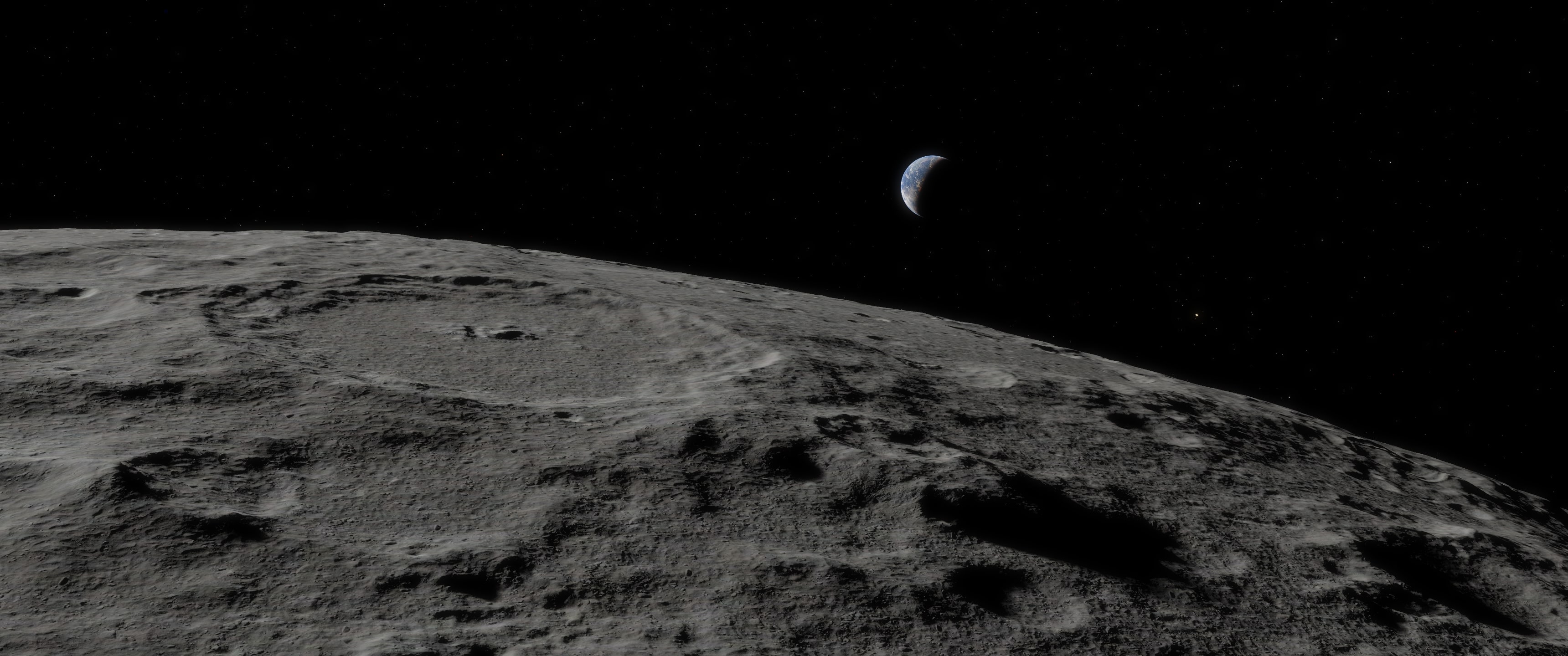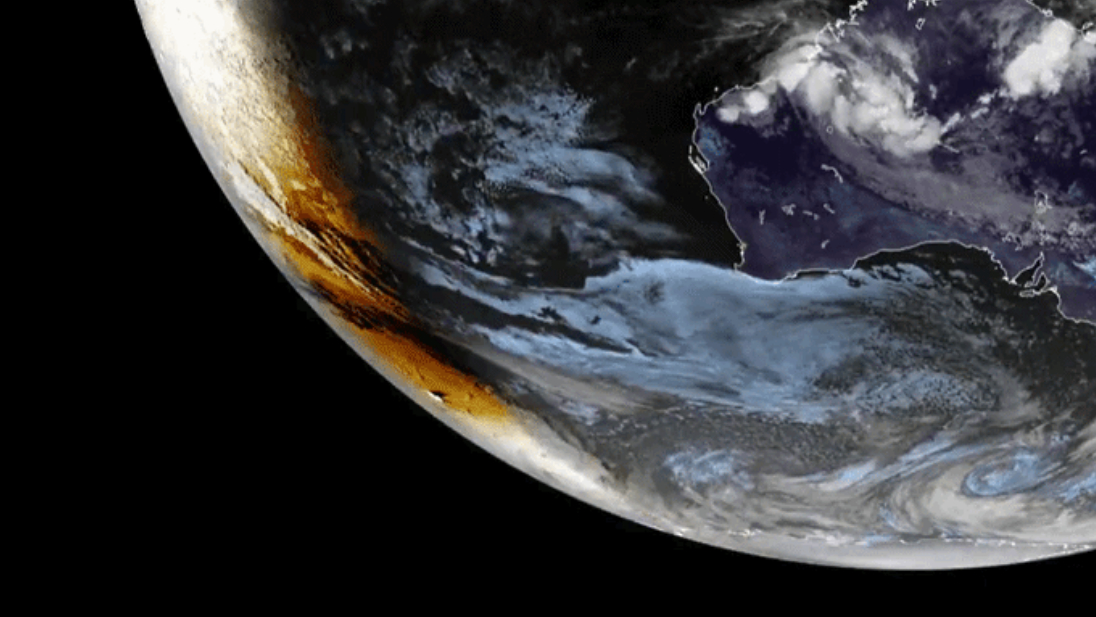'Kitten Space Agency' is the spiritual successor to 'Kerbal Space Program', and they have an ex-SpaceX engineer on the team (interview)
DayZ and Kerbal Space Program's creators have joined forces with an ex-SpaceX engineer to create the ultimate spaceflight simulator.
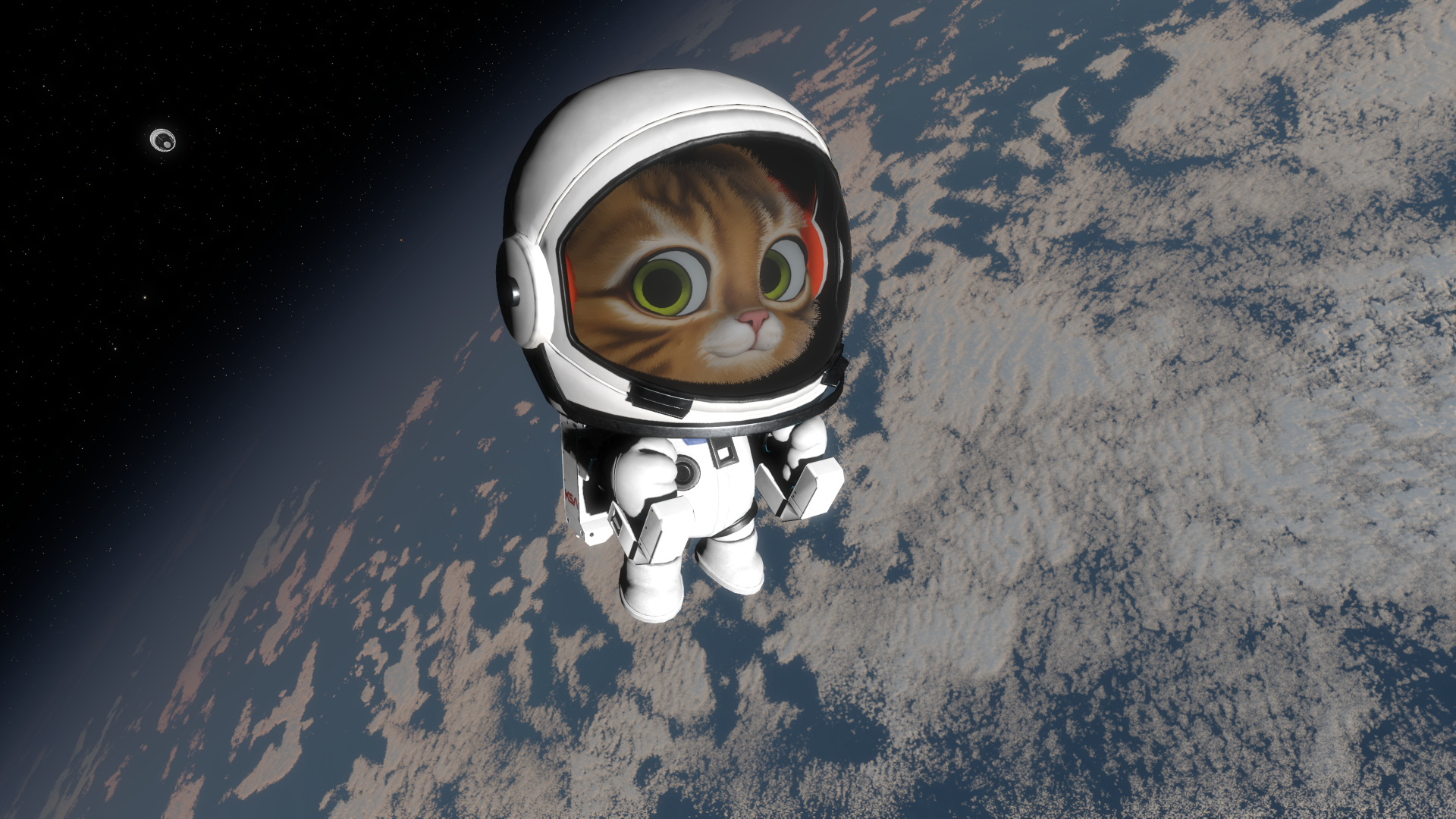
Breaking space news, the latest updates on rocket launches, skywatching events and more!
You are now subscribed
Your newsletter sign-up was successful
Want to add more newsletters?

Delivered daily
Daily Newsletter
Breaking space news, the latest updates on rocket launches, skywatching events and more!

Once a month
Watch This Space
Sign up to our monthly entertainment newsletter to keep up with all our coverage of the latest sci-fi and space movies, tv shows, games and books.

Once a week
Night Sky This Week
Discover this week's must-see night sky events, moon phases, and stunning astrophotos. Sign up for our skywatching newsletter and explore the universe with us!

Twice a month
Strange New Words
Space.com's Sci-Fi Reader's Club. Read a sci-fi short story every month and join a virtual community of fellow science fiction fans!
We often hear about how people working in the space industry first had their interest piqued by space movies and games, but someone working in the space industry for over a decade before making the jump to developing video games is a much rarer tale. But that's exactly what happened for Stefan Moluf, a programmer at games studio RocketWerkz who spent nearly 12 years working as a Flight Software Engineer for SpaceX.
His experience fits the bill, though, as the team at RocketWerkz — led by Dean Hall, creator of hit survival game DayZ — is working on a spiritual successor to Kerbal Space Program, called Kitten Space Agency (KSA). What's more, Felipe Falanghe, creator of the original Kerbal Space Program, is also working on the project.
The team has just dropped a surprise pre-alpha build of the game, so we sat down with Stefan to talk about how his experience at SpaceX prepared him for game development, and how the team at RocketWerkz is taking a unique approach to game design and distribution to create what they hope will be the ultimate spaceflight simulator experience.
Moluf explained that RocketWerks isn't being coy about the inspiration, saying it's "unashamedly a spiritual successor to Kerbal Space Program." But for the uninitiated, what does that mean?
"It's a space flight simulator, but also like a rocket building, engineering, and exploration game," explained Moluf. "It's designed to capture all the different pieces of it; building a rocket, flying it, landing on other planets, and exploring; experiencing the engineering challenges and the wonder of space flight."
Learning from the mistakes of the past
Fans of the series will know that Kerbal Space Program already had a successor — it was called Kerbal Space Program 2, and it did not go well. Development issues plagued the project, which was released in early access to a middling reception. And there it stayed, as 2K Games shut down the developer, Intercept Games, and it's now been 17 months since the game received an update. So, what went wrong? And how is RocketWerkz looking to avoid the same fate for KSA?
"There's a lot of business reasons why it failed, and then I think the more salient one for me is the technical reasons why it failed," Moluf said. "Kerbal Space Program owes a lot of its greatness to the insane stress and time pressure that Felipe was under when he was developing that with his team. It was definitely built out of whatever was at hand as fast as possible."
Breaking space news, the latest updates on rocket launches, skywatching events and more!
Kerbal Space Program started out as a fairly basic game — a "model rocket simulator," as Moluf calls it — and as development progressed, the developers added layers of complexity on top of their rocky foundations. The result was a gleaming skyscraper held up by some rickety wooden boards, duct tape, and magic. And somehow … it worked. When it came to making the sequel, though, the developers broke a cardinal rule of magic: you don't do the same trick twice. The result was a game plagued with performance issues and technical bugs, leading to negative reviews from critics and fans.
"We have a lot of lessons that we can apply to making a game that's more solid foundationally — we basically get to learn from all of their mistakes [...] and not just repeat them unfortunately, as KSP2 did," explained Moluf. "I think the most important thing is to make a game that has a technical foundation that can handle that level of complexity from the beginning."
But how does that more solid foundation translate into a better game for the players?
"Really taking [it] to a much bigger level in scale and performance is a big thing," says Moluf. "It's much more seamless. So, you can transition from vehicles on Earth to vehicles elsewhere in the solar system instantly. You're not having to do giant loading between them when you're going back to the build screen."
Beyond the more solid technical foundation, RocketWerkz is taking a very fluid and open approach to KSA's development. "The point of the game is to find the fun, hang on to it, and then just like build out from there," notes Moluf.
I've made a lot of special modifications myself
Modding was a huge part of Kerbal Space Program's success, with intrepid players adding everything from additional parts for their craft to volumetric clouds on planets and even systems to automate for some of the more complicated aspects of space travel. RocketWerkz is well aware of how important the modding community can be to a game's longevity, and they're setting themselves up for success from the off.
"The engine that we're using is this 'Brutal' framework that's made by Rocket Works," explained Moluf. "That's our own in-house creation, and it's a very low-level system to begin with. So, a lot of the stuff that we're building is actually sort of in a sense more mod-like than what you would get when you're doing normal game programming."
Stefan isn't the only team member who joined the team from outside the games industry, either. "Two of our biggest visual artists — Casper working on terrain and then Gassan working on the atmospherics — they're both huge KSP modders, already massive giants in that scene."
While the game is being built with mods in mind, the support won't be "super amazing" when the game is first released to the public, as the team is focusing on making sure the core systems (flight, construction, etc) are robust, but it will be coming.
Early impressions
We had the chance to check out the early alpha build of Kitten Space Agency prior to chatting with Stefan, and it's fair to say at the moment that it's early days. "Playing the game as it is currently, it is very technical. It's pretty impenetrable if you don't know anything about space flight," admitted Moluf.
As one of those people who learned everything they know about spaceflight from Star Trek, I didn't make for much of a mission commander; I tried to fly to the moon, remembered that orbital mechanics mean you can't just point and go in space, and promptly crashed into the Earth instead.
The pre-alpha build is more of a technical test than a functioning game, even using placeholder assets for the rockets and our solar system (the final game will take place in a fictional solar system). Even the overall art style and look of the game haven't been set in stone yet. And while you can fly a rocket, you can't build one yet.
RocketWerkz is well aware of this, with Moluf admitting that "Playing the game as it is currently, it is very technical. It's pretty impenetrable if you don't know anything about space flight." This pre-alpha release isn't about showing off the fun game you'll get to play; it's about proving the technical underpinnings are rock solid.
Despite this, the core is already very exciting to see, and the team has big plans for building the game out from here. "Once we're able to build stuff and we're able to fly, it's gonna be like, 'okay, [...] I don't want to just free-build anymore. I want to be limited in the parts I can use. I want to build out and have a progression," Moluf said.
I've always found Kerbal Space Program to be a little… impenetrable, as someone who only ever deals with sci-fi starships, rather than real rocket launches in my job here at Space. Hearing Moluf talk about how KSP wasn't realistic enough for his tastes had me worried, but he reassured me that in the long run, they're aiming to be "both pushing the authenticity more than KSP was able to do, but also being more accessible."
An Unexpected Journey
Kitten Space Agency has walked an interesting road to get to where it is today, but Moluf's been on an even grander adventure.
"I joined SpaceX basically just out of college as a fresh young programmer. Did a bunch of work there on all kinds of vehicles, doing flight software — the software that controls the vehicles." Moluf recalled. He stuck with the company for twelve years, turning down numerous other job offers, as he felt that "whatever that other company was offering, I could just get at SpaceX."
So what made him leave in the end? "SpaceX just became so big because of all the things it had to do. It wasn't really a small company anymore and couldn't ever be a small company anymore," explained Moluf. After his departure, he worked on numerous other projects with some startup companies.
"But then, when Dean Hall put out his Kitten Space Agency announcement saying that they were working on it, I just basically sent him an email saying, 'Hey, this would be fun to help with, can I?' And that's how I got here."
You'd think spaceflight engineering and game development would be worlds apart, but Moluf shared that they're shockingly similar in some ways, stating that "games and hardware control, which is basically what I was working on at SpaceX, are a lot closer to each other than, for example, web programming." In fact, Moluf noted that "hiring at SpaceX, a lot of really good people came from the games industry."
Money talks, merit walks
Perhaps just as exciting as the game itself is the open approach that RocketWerkz is taking to the development. The games industry, for the most part, is very secretive, and titles are rarely announced until they're far into development.
"We want as many people to know about it as early as possible, in as much detail as possible," Moluf noted. RocketWerkz is flying against convention with how they're distributing Kitten Space Agency, aiming to make the game completely free, with a "pay-what-you-want" system for players to support the devs.
"Both players [and developers] are not super happy with how games are sold and marketed and distributed," explained Moluf. "If both sides are unhappy, maybe we should try something else."

"We'll distribute the game for free. Obviously that furthers Dean's educational goals, making it accessible to people to try out [...] hopefully with the way that we develop the game, which is very transparent — you can see all of our commits are posted live to Discord — and seeing what what's going on in the game, that people will be inspired to help us out monetarily to continue making the game.
As Moluf explains, RocketWerkz head honcho Dean Hall has aspirations for Kitten Space Agency beyond entertainment; it's about "making the game, obviously, accessible to educators, but also making the game useful for them as well."
"KSA was a perfect choice to run this experiment because [...] spaceflight always causes people to enter dream mode. It's sort of a sense of transcendence, imagining what we could become," Moluf said. "I think there's a lot of opportunity for people to look at this game and become inspired by the possibilities of actual space flight.
Why kittens?
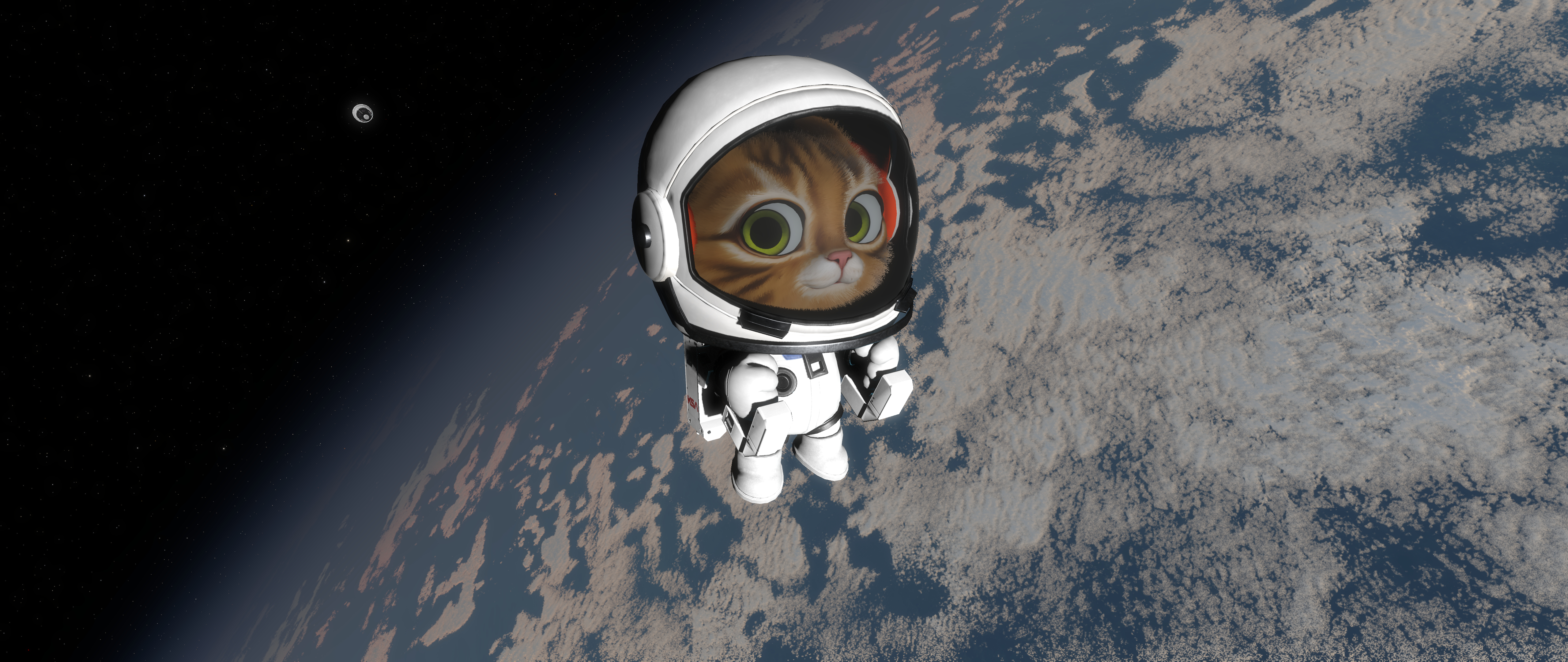
For our final question, we just had to ask: why kittens?
"I'll give the Dean party line on that one, which is that it was the least bad option or the one that fewest people objected to," chuckled Moluf. "Dean is very concerned about making early decisions that lock you into a very expensive process for creating content in the future. And one of the big drivers for that, at least for the studio traditionally, has been having to do tons of animation work."
"So, we wanted a character that was made in such a way that we can make animations that don't have to be very intricately detailed and realistic." Rocketwerkz is also hoping that an added bonus of your crew being made up of adorable kittens is that you'll treat them a little better than the poor Kerbals.
"The Kerbal characters tend to be somewhat expendable, you might say. And Dean very much wanted to lean into the idea that you wanted to take care of your take care of your astronauts and keep them alive and feel bad if you didn't do that," Moluf said. A noble goal, but the team has more faith in humanity than I do.
You can check out the Kitten Space Agency pre-alpha now by heading to ahwoo.com, or head over to the Kitten Space Agency Discord server to find out more.
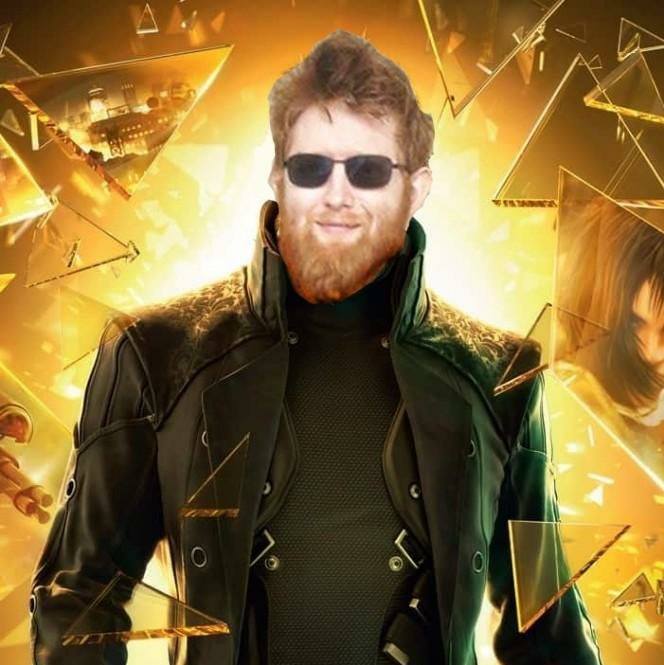
Ian is the Entertainment Editor at Space.com, covering movies, TV series, and games in the space and sci-fi realms. He's a massive sci-fi nerd and has been writing about games and entertainment for over eight years, with articles on sites like Space, LiveScience, GamesRadar, and more. With a degree in biology, a PhD in chemistry, and his previous role at the Institute of Physics Publishing, Ian is taking a world tour through the different scientific disciplines.
You must confirm your public display name before commenting
Please logout and then login again, you will then be prompted to enter your display name.
